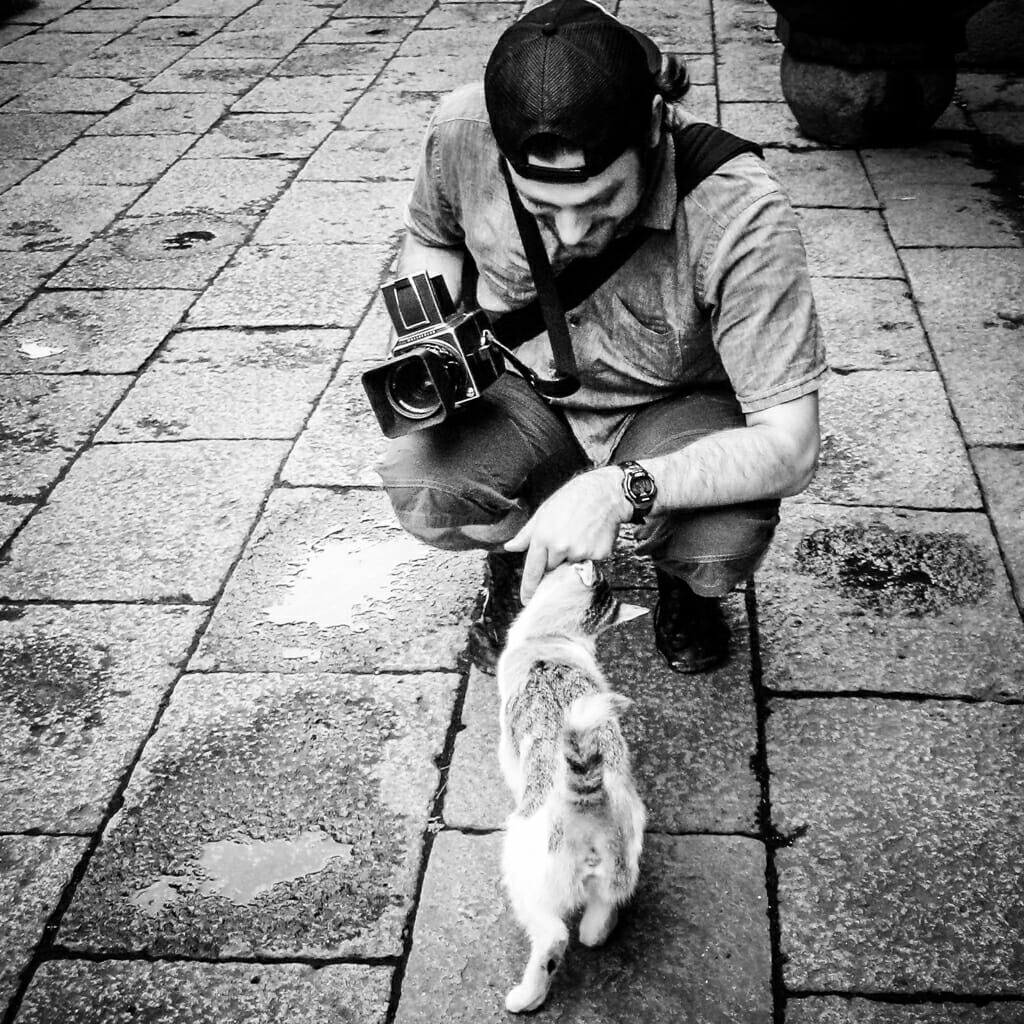Workshop: Photo Fundamentals

Table of Contents
Learn the Essentials of Exposure, Camera Controls, and Composition
In this workshop, you’ll master the essentials of camera controls, exposure, and composition—key skills that will provide a solid foundation for your continued growth in photography.
While the technical side of photography may seem intimidating at first, it’s easier to grasp than you might think. Once you understand it, these techniques become powerful tools that enhance your creative expression.
Learning the core principles of composition gives you a framework for crafting more compelling images. The sooner you get comfortable applying these ‘rules,’ the sooner you can begin breaking them to push your creativity even further.
Who Is This Workshop For?
This workshop is for anyone who wants to learn the core skills of photography, both technical and creative. It is ideal for beginners who want a solid foundation to build on. Whether you’re serious about improving your photography or just want to know more about how it all works while enjoying making photographs, the goal is to give you the tools you need to do more with your photography.
Workshop Format
The photo fundamentals workshop is broken down into three main sections:
- An instructional session, in which the core concepts are taught prior to putting them to use.
- A hands-on shooting session, during which we’ll head out and explore, making photographs as we go, with several mini-assignments included to exercise some of the principles we studied in the first section.
- A review and feedback session after returning from the photo shoot, during which we’ll look at the images you made. Through a process of constructive criticism, we’ll identify your successes for the day and pinpoint areas on which to focus for further improvement.
Overall, expect the workshop to last 4-5 hours overall, not including breaking for lunch (etc) if necessary.
What's Covered in the Instructional Session
- The Fundamentals of Exposure:
- Aperture, shutter speed, ISO/sensitivity, and how they’re related
- Manually controlling exposure on the camera
- When and why the camera gets it wrong
- Making creative choices with exposure
- The Fundamentals of Composition:
- Core concepts in composition
- Common compositional tools
- Understanding where the eye goes
- Understanding the hidden geometry of images
- Examples of compositional ‘rules’ in well-known photographs
Putting It To Work
In the second section of the workshop, we’ll head out and put your new knowledge to work. Over the course of two hours, we’ll explore a range of locations, looking for photographs. During this time, I’ll give you three or four mini-assignments—focused practice of some of the compositional principles we discussed in the first section. I’ll also be there to help with technical matters and troubleshoot any problems that may arise.

Review and Feedback
In the final section of the workshop, we’ll look at your best images from the day. We’ll analyze what worked well, problems encountered, and how to continue to improve in the future. In group workshops, this is also an opportunity to learn how to offer (and receive) constructive criticism in a supportive and productive way.
If there are any points that are still confusing or unclear, such as with elements of exposure, we can discuss them further.
During this time, we’ll also have a Q&A session, during which you can ask any remaining questions you might have about anything we discussed during the workshop.
Included Reference Materials
An informational packet covering the subject matter of the workshop will be provided for you, so that you can review and clarify what we studied as often as you like after the workshop.
About Your Instructor

I’m David R Munson, originally from the USA and based in Japan since 2015.
My love for photography has driven me since 1996, and I’m passionate about sharing that enthusiasm with others. While I’ve worked across both commercial and fine-art photography, my approach to teaching is deeply shaped by two other roles I’ve held: photo assistant and educator.
As a photo assistant, I had to master the technical side of everything while also developing the creative insight needed to support the photographers I worked with. My time as an English teacher sharpened my communication and teaching skills, showing me how to effectively engage and guide people—an experience that greatly informs my workshops.
In every lesson and workshop, my goal is to create a supportive, enjoyable environment that helps students learn, grow, and explore their creative potential.
Information
Requirements
You don’t need to have any experience with photography to take this workshop. In fact, it is aimed at newcomers. There is only one requirement:
- You need to have a digital camera that allows manual setting of ISO, aperture, and shutter speed.
Most DLSR or mirrorless cameras should be OK. If you are unsure if your camera allows you to make manual adjustments, please feel free to contact me and I can tell you for sure. Please be sure to include the brand and model of the camera you would like to use.
If you would like to do this workshop using a film camera, that is also fine, but we’d need to do the review & feedback session online and at a later date to allow time for film processing and scans.
Location
Location is flexible and the workshop can be held pretty much anywhere. However, my primary suggestions are as follows:
- The areas surrounding the following stations: Akabane, Akihabara, Ikebukuro, Nakano, Nippori, Shakujii Koen, Shinjuku, Koenji
- Yoyogi Park and Meiji Jingu
- Omiya Station area and Omiya Park
That last one is actually in Saitama, but its a great location and it’s close to where I live, so if you want to meet there, I’ll give you a 20% discount.
Really, though, we can do the workshop anywhere you want in Tokyo or over the river in Saitama. I’ve never seen a part of Tokyo that wasn’t interesting, so there’s no reason it can’t work wherever you want to go.
Regarding the initial instruction and review sessions: the first and last parts of the workshop are best done indoors where we can easily see a computer screen. If it’s one-on-one or with a couple of participants, we can go to a coffee shop or family restaurant. If you’re staying at a hotel, your room is another good option. Weather-permitting, we can also do this part outside, but it introduces possible complications.
NB: I am happy to provide this and other services outside the Tokyo area, but the fee must be negotiated to accomodate transportation and other costs.
Date and Time
I freelance, so most days are fine if I’m not already booked. This is basically a half-day workshop, so I recommend a morning start time around 8:00-9:00, or if you’d prefer to start in the afternoon, I recommend starting by 13:00 to ensure we don’t run out of daylight when we’re out making photographs (especially in winter, when the sun can set as early as 16:30).
Pricing, Payment, and Cancellation
Pricing
Currently, this workshop is available for individuals and small groups that book the workshop together.
The price of the workshop is JPY ¥20,000 for the first participant, an additional ¥10,000 for a second participant, and ¥5,000 for each additional person up to a maximum group size of six.
| Number of Participants | Workshop Cost | In Saitama City* |
|---|---|---|
| 1 | ¥20,000 | ¥16,000 |
| 2 | ¥30,000 | ¥24,000 |
| 3 | ¥35,000 | ¥28,000 |
| 4 | ¥40,000 | ¥32,000 |
| 5 | ¥45,000 | ¥36,000 |
| 6 | ¥50,000 | ¥40,000 |
*A 20% discount applies for anyone who comes up to Saitama City for the workshop.
Payment
Payment is due in full at the time of booking, and can be made online by credit card.
Cancellation, Rescheduling, and Natural Disasters
Cancellation:
- More than 72 hours notice: 100% refund
- 24-72 hours notice: 50% refund
- Less than 24-hours notice: no refund
Note: any non-refunded amounts can be applied to this or another service at a later date.
Rescheduling:
If you need to reschedule, please get in touch with me as early as possible. Generally, all rescheduling must be arranged no less than 72 hours before the scheduled time.
Natural Disasters, Acts of God, etc
If there is a big earthquake, typhoon, etc that realistically prevents us from holding the workshop, we can reschedule. If rescheduling isn’t possible, I will issue a refund.
Booking
For the moment, I am not using an integrated booking system, but will change that as soon as I find one that fits my needs. For now, please fill out the inquiry form below and I’ll get back to you as soon as I can. If there are any errors, you can also email me directly at davidrmunson@gmail.com. For all other inquiries, please visit the contact page.
